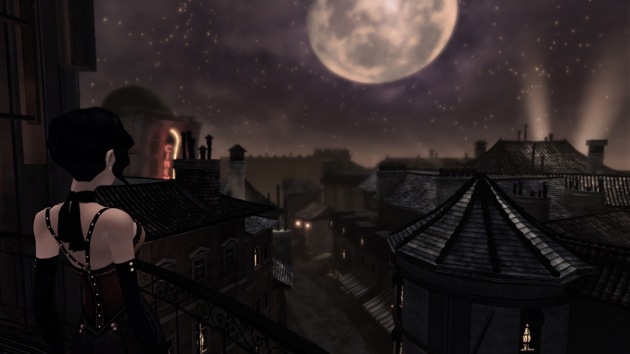The Vanishing of Ethan Carter
August 8, 2015 7 Comments
The Vanishing of Ethan Carter opens with a screen warning that it doesn’t “hold your hand.” So many games make this claim anymore that it’s starting to come across as kind of snotty and condescending. Ethan Carter’s lack of hand holding isn’t in the difficulty sense, like Bloodborne or 1001 Spikes. You can’t die, and there are no real stakes besides extending the delay of the unfolding story. Instead, it doesn’t hold your hands in the sense that you’re given no instructions at all. No tutorial, no hints what the game’s primary mechanics are, or what your end goal is. So, in my first attempt at playing Ethan Carter, I ended up missing the first four of ten “puzzles.” The fifth one is neither a puzzle nor possible to miss (I think). The first one I actually stumbled upon and solved was the sixth one. Of ten. This is the kind of not-hand-holding that a sadistic swimming instructor with a growing body count would believe in.
Ethan Carter is an aimless wandering simulator that occasionally gets interrupted by an interesting plot. I’ve never been into Lovecraftian type of horror, so when I found the story to be good, I was a bit surprised. However, I missed nearly the first half of it, so I decided I would break a personal rule of mine. I try to avoid using walk-throughs when I review games. Now, I had stumbled upon a couple of the puzzles, but I didn’t realize they were puzzles or would unlock the plot. The game doesn’t imply any of that. When I solved the graveyard sequence, I decided to just start over from the beginning and have someone send me a list of the general locations of the puzzles. Just having that list and the knowledge that there were puzzles to complete totally changed my enjoyment of the game. It was okay. Okay is better than “God I’m bored out of my fucking skull.”
I hate doing this with any game, because it’s 2015 and nobody should give a shit about graphics anymore unless they are mind-blowingly awesome. I don’t know if the Vanishing of Ethan Carter is quite that good, but it’s probably the most gorgeous indie up to this point. To put it in perspective, my mother walked into the room while I was making my way through a forested area and asked what movie we were watching. Movie. Until she said that, I hadn’t stopped to appreciate how damn good-looking Vanishing of Ethan Carter is. Now, that story wouldn’t have happened if I was in many of the areas of the game, especially ones that take place in a mine, or ones where there’s rushing water. The cave section looks like any other cavern level in a first-person game, and rushing water has that creepy uncanny valley effect, slightly life-like but undeniably off. Probably the most off-putting thing about the presentation is you don’t feel even close to a real person. You feel like a camera hovering six above the ground. The lack of humanity in the player-character made it nearly impossible to ever feel immersed. Which is a shame because the world created is photo-realistic at times and that kind of goes to waste.
I’ll go spoiler-free on the plot as much as possible. It’s pretty obvious early on that some kind of twist ending was coming, but Ethan Carter still manged to fool me with it while still feeling like I wasn’t cheated by the context. It wasn’t like Braid’s “deep” twist ending where, spoiler alert on a game eight years old: the main character of Braid was part of the Manhattan Project and felt guilty for creating nuclear weapons, with the world of Braid being his escapism to alleviate his guilt. Yea. I haven’t met a person yet who didn’t blurt out “where in the fuck did that come from?” when they experienced that ending. But Braid is popular and pretentious allegories pulled out of thin air are all the rage in Indieland, so I expected Ethan Carter to end on one. It didn’t. The ending was satisfactory in a Twilight Zone sort of way and felt real. I guess you can’t ask for anything more.
SPOILER WARNING – SKIP THIS PARAGRAPH IF YOU WISH TO AVOID
Not that the story doesn’t occasionally devolve into raving lunacy. The most random happening involved an encounter with an astronaut. I think it was meant to be a jump scare when it first appeared, but it was so random that all I could do was laugh. This eventually led to a section where I was floating through space in a scene I swear was ripped straight from that God awful piece of shit movie Contact. Even after finishing Ethan Carter, I’m not entirely sure what the point of that part was. The studio behind this game is named Astronauts, so maybe this was meant to be an in-joke for them. Another failed attempt at scares occurred in the cave area, where you’re being stalked by a ghost while searching a maze for five dead bodies. I wasn’t aware that this was considered the most terrifying section of the game by most people due to “jump scares” that happen during it. This is because I found all five dead bodies and solved the puzzle in it without ever having the ghost catch me. In fact, I only caught a glimpse of it once and heard it two other times. Given that Ethan Carter’s form of horror is based more on atmosphere and characterization, I’m surprised it would even try to do jump scares. I think I enjoyed the experience more than others did as a result. Jump scares are something anyone can cause with a plastic bag full of air and a floor that doesn’t squeak when you try to sneak up behind someone. Lowbrow and easy. Creeping people out with an unnerving atmosphere takes skill, and Ethan Carter pulls it off.
END OF SPOILERS
The writing is not bad at all. The cut scenes have pretty decent voice acting. Ethan Carter does almost nothing wrong in terms of plot and storytelling. It’s the method of delivery that I feel doesn’t serve players properly. It goes back to the “hand holding” thing. What is so wrong with pointing players in a direction? Shadow of the Colossus is similar to Ethan Carter in the sense that you have a vast open world with specific areas you need to discover. You’re not told how to discover them, or what to expect when you get there. You hold your sword up and it points the direction, and that’s it. Nobody would accuse that of being an example of hand-holding. So that opening “we don’t hold hands” bit almost feels accusatory against players. “Oh, you didn’t find the stuff we obscurely hid? What, you expect directions? What kind of pussy-whipped casual gamer are you?”
Maybe the Vanishing of Ethan Carter is a glorified tech-demo, as some of my readers on Twitter suggested. While there are a couple creative puzzles, most of them come down to finding items and returning them to their locations. A few times you’ll be required to look at a few different dioramas and place them in sequential order. If the puzzle design had matched the art quality, Ethan Carter would have been something very special. I do reject the notion that Ethan Carter is an “experience” more than a game. It’s a game, and a perfectly fine one. I don’t think it will withstand the test of time, or be particularly memorable. As technology gets better and games that look like this become more common place, its relevance will fade. Ultimately, I did enjoy it when I played it “my way”, with general instructions to the locations of the ten puzzles. Others enjoyed it without those, liking the sense of discovery. Others still got sick aimlessly wandering around without any clue what they were doing and quit. I can’t help but wonder if Ethan Carter would have benefited greatly by giving players two options: to play the game with or without direction. If they had done that, all discussion of the game would have been centered around its merits instead of its abstraction. Ethan Carter can stand on its own merits. It’s a quality game, even if it’s so militantly against holding hands that it comes across like a six-year-old afraid of catching cooties.
 The Vanishing of Ethan Carter was developed by Astronauts
The Vanishing of Ethan Carter was developed by Astronauts
Point of Sale: PlayStation 4, Steam
 $19.99 walked away from Ethan Carter feelings like her eyeballs were gently massaged by the graceful hands of God himself in the making of this review.
$19.99 walked away from Ethan Carter feelings like her eyeballs were gently massaged by the graceful hands of God himself in the making of this review.
The Vanishing of Ethan Carter is Chick-Approved and ranked on the Indie Gamer Chick Leaderboard.










You must be logged in to post a comment.